When considering a tooth implant, one of the most crucial decisions involves choosing the right material for the implant. The success and longevity of a tooth implant are Comprehensive Guide to Tooth Implant Material Options, making it essential to understand the various tooth implant material options available. This guide delves into the different materials used for tooth implants, examining their benefits, drawbacks, and suitability to help you make an informed decision.
Understanding Comprehensive Guide to Tooth Implant Material Options
Before exploring tooth implant material options, it’s essential to grasp the concept of dental implants. Tooth implants are artificial tooth roots surgically placed into the jawbone to support replacement teeth. They provide a strong and durable foundation for crowns, bridges, or dentures, restoring both function and aesthetics.
The Importance of Material Selection
The material used for tooth implants is a critical factor influencing the implant’s success, longevity, and appearance. The ideal material should possess several key characteristics:
- Biocompatibility: It should integrate seamlessly with the surrounding bone and soft tissues, minimizing the risk of rejection or inflammation.
- Strength and Durability: The material must withstand the forces of biting and chewing without fracturing or breaking.
- Aesthetics: The material should blend naturally with the surrounding teeth and gums, ensuring a beautiful smile.
Common Tooth Implant Material Options
While various materials are used in dental implants, titanium and zirconia are the most prevalent choices. Let’s explore these options in detail.
- Titanium Implants: The Gold Standard
Titanium is the most commonly used material for tooth implants and has been the gold standard in implant dentistry for decades. Titanium is favored due to its biocompatibility, strength, and ability to osseointegrate, which means it can fuse with the bone over time.
Advantages of Titanium Implants
- Biocompatibility: Titanium is highly compatible with human tissue, reducing the risk of rejection and ensuring a stable foundation for the artificial tooth.
- Strength and Durability: Titanium implants are incredibly strong and durable, capable of withstanding the pressures of chewing and biting.
- Osseointegration: The property of osseointegration allows the implant to bond directly with the jawbone, providing a solid base for the replacement tooth.
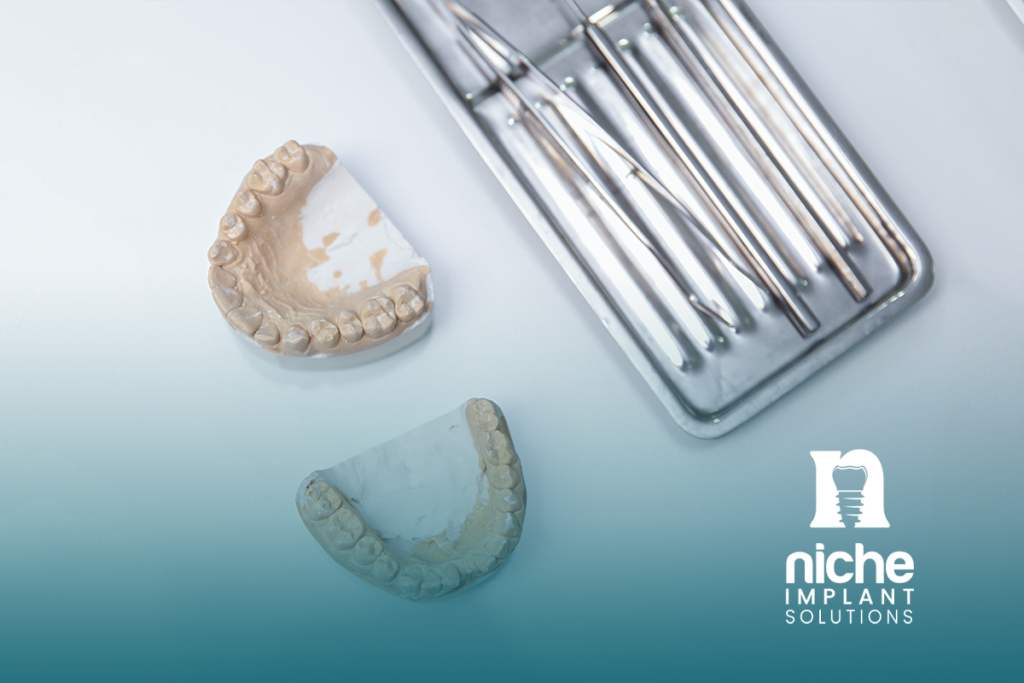
Disadvantages of Titanium Implants
- Aesthetic Concerns: Titanium implants may sometimes show a grayish tint through the gums, which can affect the aesthetic outcome, especially for implants placed in the front of the mouth.
- Metal Sensitivity: Although rare, some patients may have allergies or sensitivities to titanium.
2. Zirconia Implants: Aesthetic and Biocompatible Option
Zirconia is a ceramic material that has gained popularity as an alternative to titanium. Zirconia implants are known for their aesthetic advantages and biocompatibility.
Advantages of Zirconia Implants
- Aesthetic Appeal: Zirconia implants are white, which helps them blend seamlessly with natural teeth and gums, making them ideal for visible areas.
- Biocompatibility: Zirconia is also biocompatible and less likely to cause allergic reactions compared to metal implants.
- No Metal Sensitivity: For patients concerned about metal allergies, zirconia offers a metal-free option.
Disadvantages of Zirconia Implants
- Limited Long-Term Data: While zirconia implants show promise, there is less long-term data compared to titanium implants.
- Cost: Zirconia implants tend to be more expensive than titanium options.
Selecting the right tooth implant material is an important decision that should be made in collaboration with your dentist. Titanium and zirconia are the two primary options, each with its own advantages and considerations. By understanding the properties, benefits, and factors influencing material choice, you can make an informed decision that best suits your needs and expectations. Remember, the ultimate goal is to restore your smile’s function, aesthetics, and confidence.
Other Tooth Implant Material Options
Beyond titanium and zirconia, several other materials are used or being researched for tooth implants. These options include:
Stainless Steel Implants
Historically used in pediatric dentistry and certain dental applications, stainless steel implants are less common for permanent implants. They are known for their affordability but are not typically used in adult permanent implant procedures due to aesthetic and biocompatibility concerns.
Ceramic Implants
Ceramic implants, which are similar to zirconia but can come in different ceramic compositions, offer another metal-free alternative. They are designed to provide similar aesthetic and biocompatibility benefits.
Composite Implants
Composite materials that combine ceramic and resin are being explored for their potential benefits. These materials aim to offer a balance of strength, flexibility, and aesthetics.
Factors Influencing the Choice of Implant Material
Selecting the appropriate material for a dental implant is a multifaceted decision that involves careful consideration of several critical factors. The choice of implant material can significantly impact the success, functionality, and aesthetic outcome of the implant. Understanding these influencing factors helps ensure that the chosen material aligns with both the clinical requirements and personal preferences of the patient. Here’s a closer look at the key elements that play a crucial role in determining the ideal tooth implant material for your needs.
Bone Quality and Quantity
- The quality and quantity of the jawbone can influence the choice of material. Titanium implants are often preferred for cases with less bone density, as they offer robust osseointegration.
Aesthetic Requirements
- For patients prioritizing aesthetics, zirconia and other ceramic materials are preferred due to their natural appearance and translucency, which mimics natural tooth enamel.
Allergies and Sensitivities
- Patients with metal sensitivities or allergies may opt for zirconia or other metal-free materials to avoid adverse reactions.
Also read: Dental Implant Technology: Game-Changing Advances Redefining the Field
Cost Considerations
- Cost is always a consideration. While titanium implants are generally more affordable, zirconia and other advanced materials may be more expensive but offer additional benefits.
Longevity and Durability
- Titanium implants have a long track record of durability and longevity. While newer materials like zirconia show promise, long-term studies are still ongoing.
Comparing Long-Term Outcomes of Tooth Implant Material Options
When evaluating tooth implant material options, long-term outcomes are a crucial consideration. Titanium implants have been used for decades, and their long-term success rate is well-documented. Zirconia implants, while promising, are relatively new, and ongoing research will provide more data on their long-term effectiveness.
Future Trends in Tooth Implant Materials: Exploring New Horizons
In the rapidly evolving field of dental implants, the future of tooth implant material options is both exciting and promising. Advances in technology and materials science are paving the way for innovative solutions that promise to enhance the effectiveness, durability, and aesthetic appeal of dental implants. As we look ahead, several key trends are emerging that could redefine the landscape of tooth implant material. This comprehensive guide explores these future trends, offering insights into how they could impact the world of dental implants.
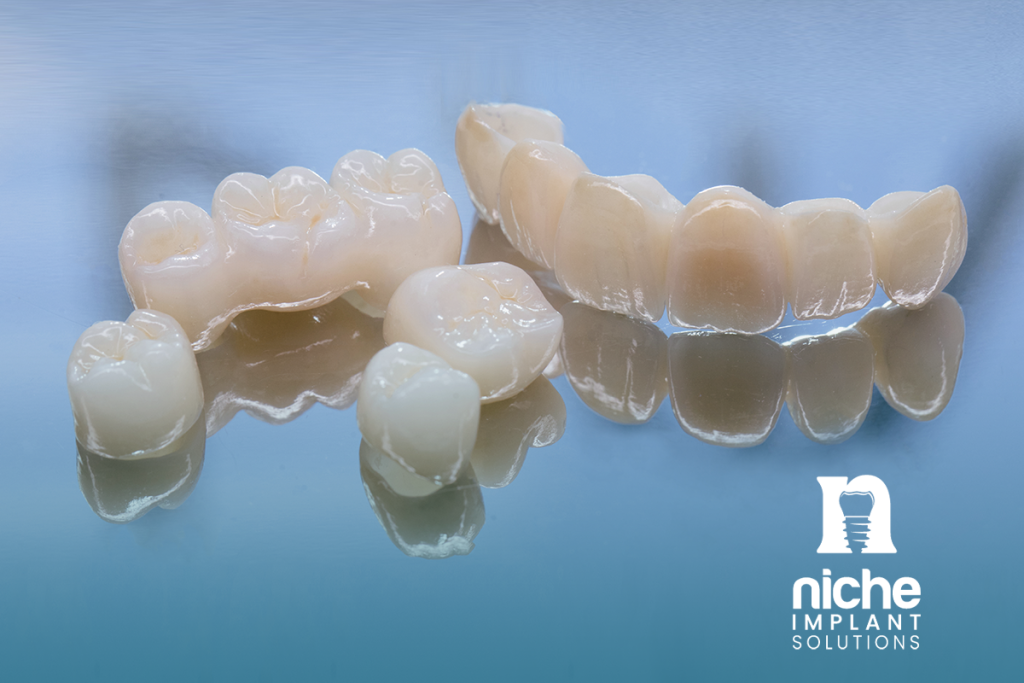
1. Introduction to Future Trends in Tooth Implant Materials
Tooth implant material options have traditionally been limited to well-established materials like titanium and zirconia. However, the future of dental implants is set to expand with the introduction of advanced materials and technologies. These future trends aim to improve not only the functionality and longevity of implants but also their aesthetic outcomes and biocompatibility.
2. Smart Implants: The Next Frontier in Tooth Implant Material Options
One of the most exciting trends in tooth implant material options is the development of smart implants. These implants incorporate advanced technology, such as sensors and electronic components, to monitor various parameters related to the implant and surrounding tissue.
How Smart Implants Work
Smart implants are embedded with tiny sensors that can detect changes in the implant site, such as bone density, temperature, and stress levels. This real-time data can be transmitted to dental professionals, allowing for proactive monitoring and early detection of potential issues.
Benefits of Smart Implants
- Enhanced Monitoring: Continuous monitoring of implant health can lead to early intervention if complications arise.
- Personalized Care: Data from smart implants allows for tailored treatment plans and adjustments based on individual patient needs.
- Improved Outcomes: By providing real-time feedback, smart implants can help improve overall implant success rates and patient satisfaction.
The future of tooth implant material options is marked by exciting advancements that promise to enhance the functionality, aesthetics, and overall success of dental implants. From smart implants and biodegradable materials to advanced ceramics and personalized solutions, the trends discussed in this guide highlight the dynamic nature of dental implant technology.
Discover the Best Tooth Implant Material Options for Your Needs
When it comes to dental implants, choosing the right material is crucial for both functionality and aesthetics. At Niche, we specialize in offering top-quality tooth implant material options tailored to meet your specific needs. With the latest advancements in dental technology, our range of materials provides you with the best solutions for restoring your smile with confidence. This guide will walk you through the various tooth implant material options we offer and help you understand why choosing the right material is essential for your oral health.
Why Choosing the Right Tooth Implant Material Matters
Selecting the appropriate material for your dental implants is more than just a matter of preference; it’s about ensuring long-term success and satisfaction. The material you choose will influence the implant’s durability, compatibility with your jawbone, and overall appearance. At Niche, we are committed to providing a range of tooth implant material options designed to cater to diverse needs and preferences, ensuring that you receive the best possible care and outcome.
Making the Right Choice for You
Choosing the right tooth implant material option requires careful consideration of several factors, including:
- Functional Needs: Consider the functional demands of your implant, including strength and durability requirements.
- Aesthetic Preferences: Determine the importance of aesthetics in your decision, especially for implants in visible areas.
- Biocompatibility: Evaluate any sensitivities or allergies you may have to specific materials.
- Cost Considerations: Different materials come with varying costs, so it’s important to choose an option that fits within your budget while meeting your needs.
At Niche, our team of experts is here to guide you through the selection process, ensuring you make an informed decision that aligns with your personal preferences and oral health needs.
Choosing the right tooth implant material is a crucial step in achieving a successful and satisfying dental restoration. With a range of options including titanium, zirconia, and emerging technologies, you have the flexibility to select a material that best meets your needs. At Niche, we are dedicated to providing the highest quality tooth implant material options and personalized care to help you achieve the smile you’ve always wanted.
If you’re ready to explore the best tooth implant material options for your needs, contact us today to schedule a consultation. Our experienced team will help you navigate your choices and find the perfect solution for a healthy, beautiful smile.

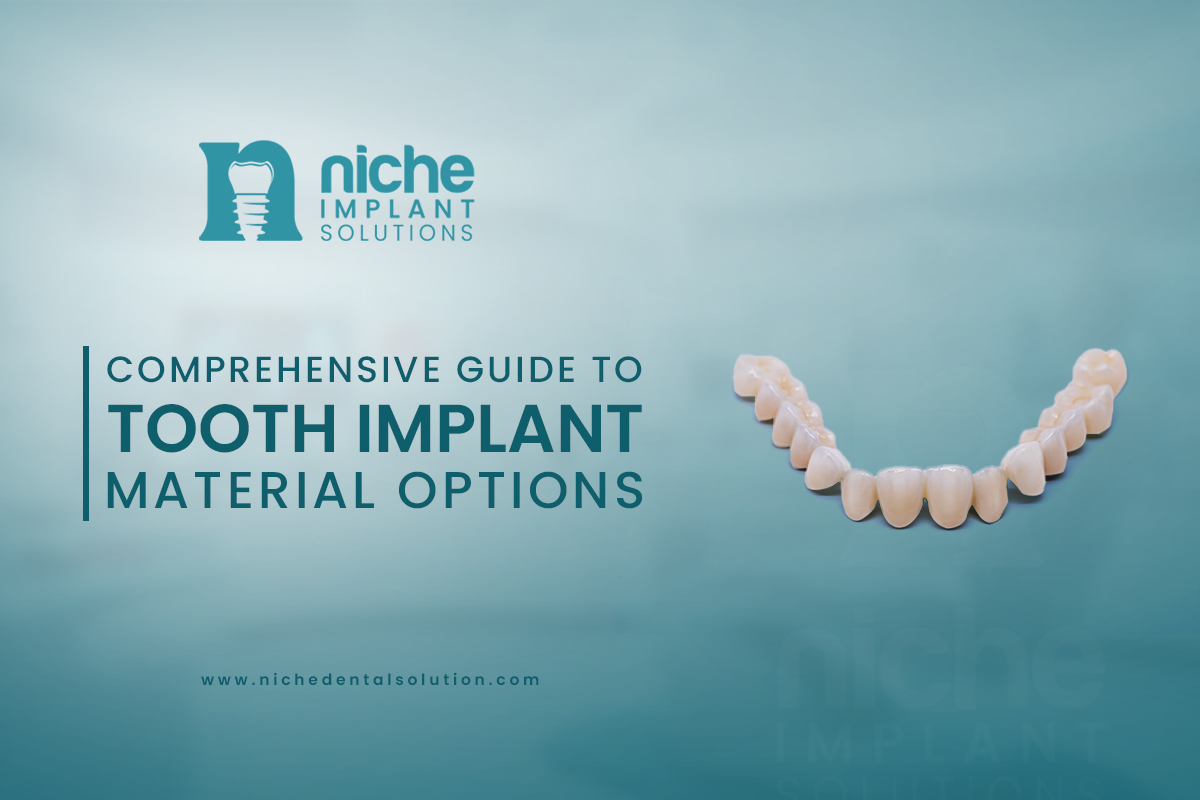
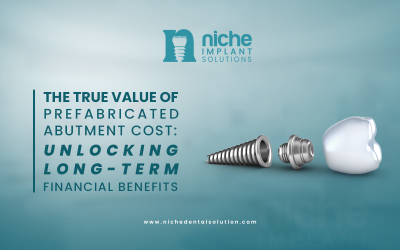
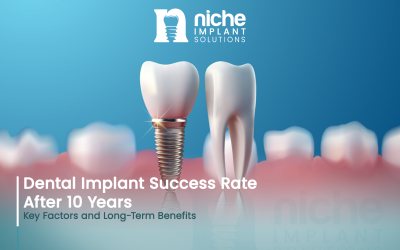

0 Comments